IASbaba Prelims 60 Days Plan, Important Updates, Rapid Revision Series (RaRe)
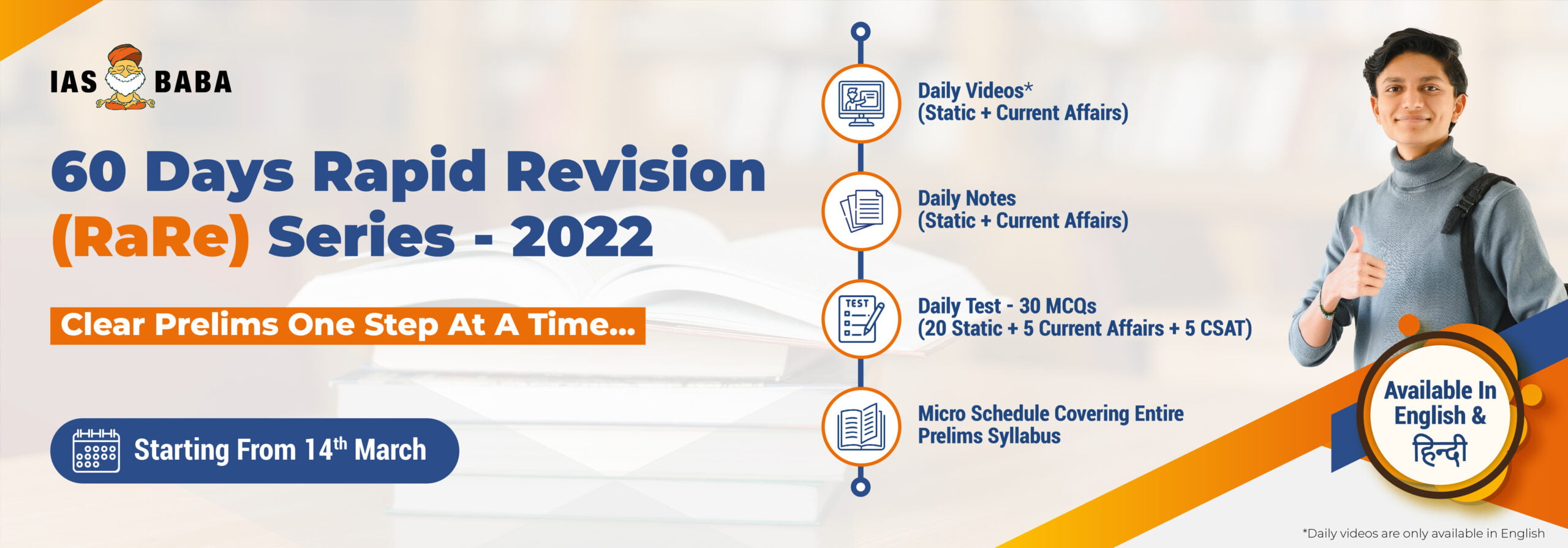
Hello Friends,
Finally, the time has arrived for the announcement of the programme which every aspirant appearing for UPSC Prelims Examination dearly waits for!
Yes, indeed, we are talking about the most cherished, reliable and sincerely followed ‘60 – Days Programme’. A programme that has become synonymous with UPSC Preparation among lakhs of aspirants.
You are going to compete with the “Toppers of Tomorrow” as every year almost all the toppers have been recommending the “60 Days Programme”.
Like every year, the marathon has begun and it would be simply not justified to bring some sweet surprises to make your preparation enthusiastic and methodological.
If you remember, last to last year, we started a Rapid Revision (RaRe) Series after the 60 – Day programme due to the extension of the Prelims date. This time we have combined the two programs and we present before you – “The 60 Days – Rapid Revision (RaRe) Series”.
As a testimony to the success and impact of ‘60 Day’ & IASbaba’s Test Series/ILP, we are providing an exhaustive year-wise analysis of HIT RATIO in Prelims and Feedback by Toppers.
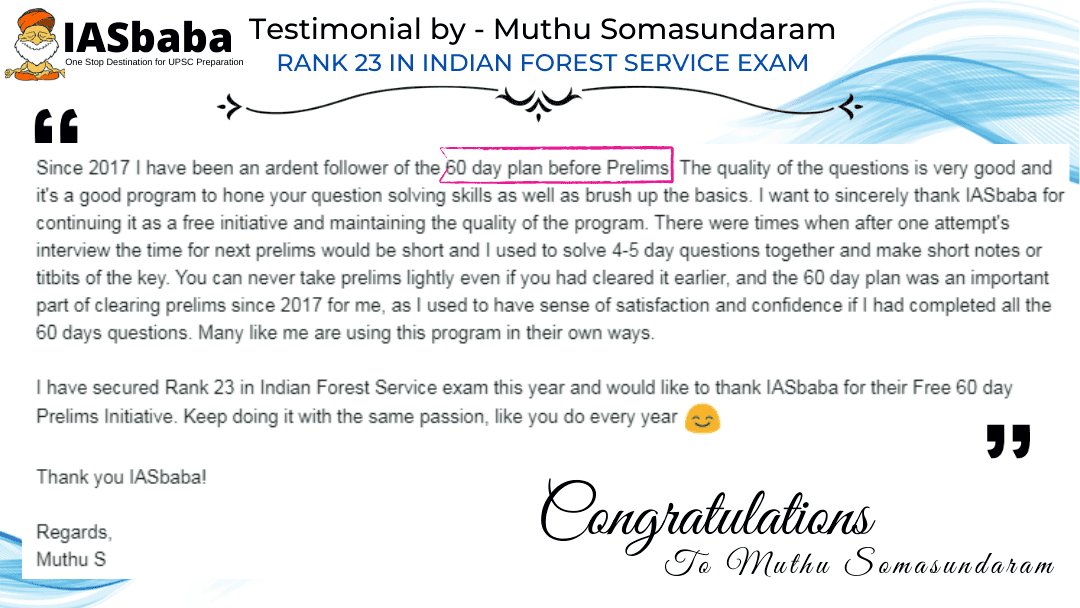
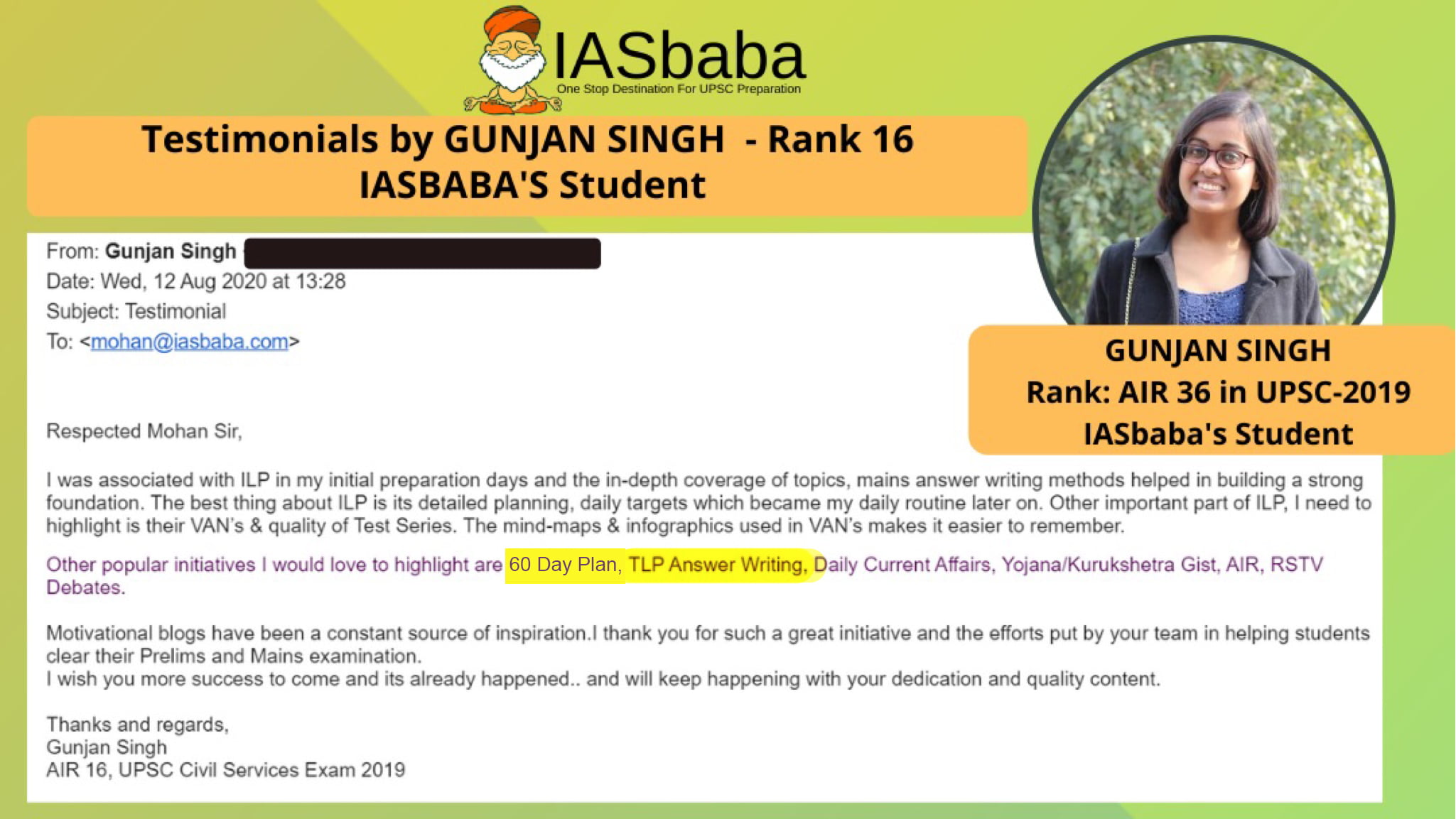
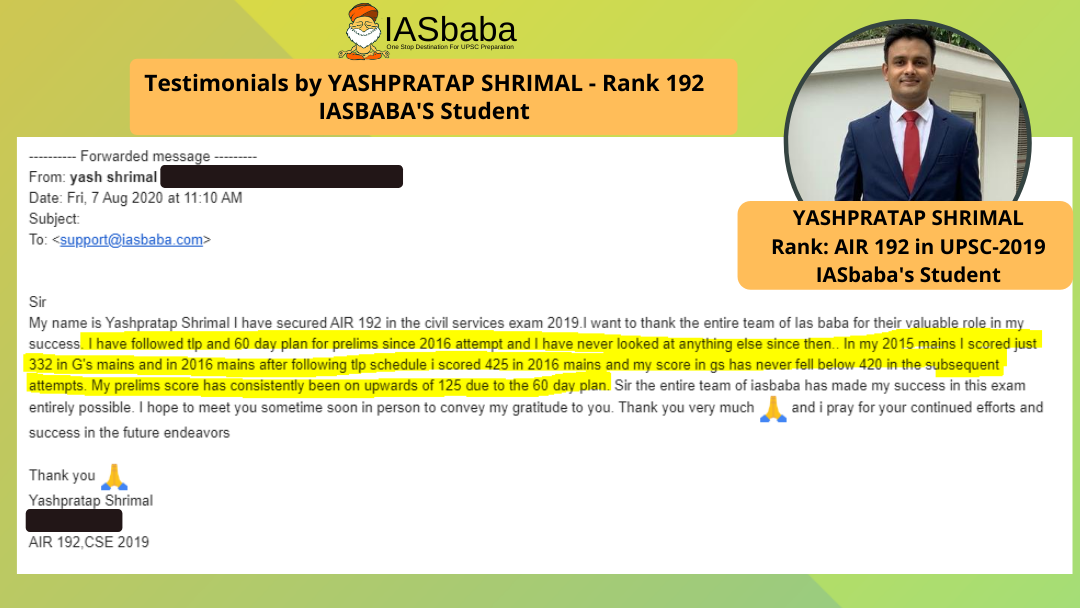
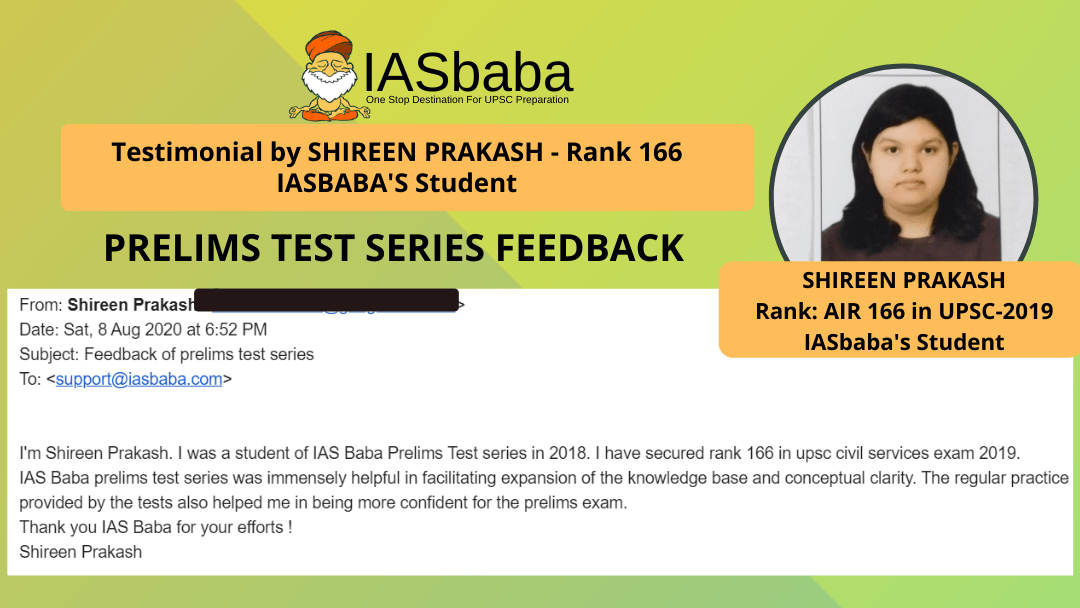
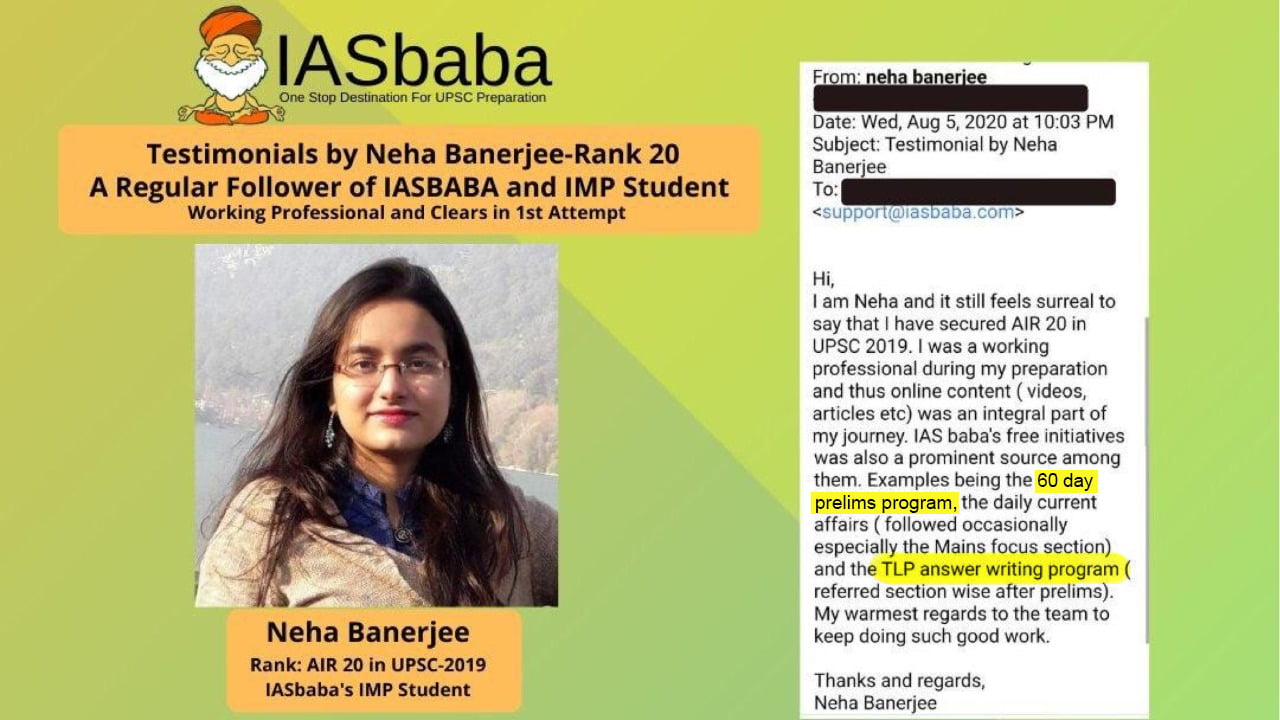
As you are aware, in this programme, we will be providing you with a schedule for 60 days, so that one can finish the revision of the entire syllabus in a time span of 60 days.
This schedule will be your guiding light to keep you on track. In order to maintain accountability and to test the level of your preparation, daily, 30 questions will be updated on the website. Out of 30, 20 questions will be from the static sources (from the topics given in the schedule), 5 questions from Current Affairs and 5 questions from CSAT.
This will give you a holistic practice of all the aspects of the UPSC Prelims preparation. The questions are framed considering the trend of UPSC and based on intelligent and thorough interpretation of the kind of questions that can be asked in the upcoming Prelims examination.
In order to stay true to yourself and track preparation, once you are done with the tests, it is advisable to upload the OMR Sheet on a daily basis in the comment section. This exercise for the next 60 days will track your progress like nothing else. This is a kind of self-accountability that is extremely important.
We can assure you that this progress is a major morale booster. In the comment section, you will be able to ask technical queries also, and our subject experts will address your issues and concerns. The comment section also helps in a healthy peer discussion.
Apart from the daily questions, a daily video of 30 – 40 mins will be uploaded on our YouTube Channel, covering the important topics from the syllabus. These lectures will help in understanding the angles from which a question can be asked and it will provide a lot of clarity on important topics.
Furthermore, we will provide daily handouts for quick revision, ensuring you do not miss out on any important topic.
Hence, in a nutshell, the following are the deliverables of the Programme –
PROGRAMME DELIVERABLES
- A Detailed, Practical, Thorough and Effective Plan for the next 60 days.
- Daily Videos – covering important current affairs and static topics.
- Daily handouts for quick revision of the topics.
- Daily Test of 20 static questions, 5 current affairs and 5 CSAT questions. (30 Prelims Questions)
- Peer Discussion and Experts Attending to Your Queries.
- Two-All India Full Mock Test (Prelims Full Mock Papers for GS and CSAT).
- Including the Mock Test, we will be providing you with a total of 2000 questions, with detailed and lucid explanations.
- Start Date: 14th March 2022
- End Date: 21st May 2022 which will be followed by 2 FREE FULL MOCK TESTS (GS + CSAT).
- Fees: NIL/ Absolutely FREE
- Everyone scoring more than the cut-off marks gets a SALUTE from BABA.
- Detailed Solution PDF will be provided
Note – Daily videos are only available in English.
To Receive Regular updates about the 60 Days – Rapid Revision (RaRe) Series – Click Here
Please Note: The questions will be posted 6 days a week between 10 am – 11 am on daily basis!
“The idea of the 60 day Plan is simple- one small step at a time!”
Yes! One small step is what it takes to become successful!
One small step is what it takes to realize your dream of becoming a civil servant!
One small step is what it takes to become what you always wanted to become.
But what is that one small step?
What if we told you that following a simple step of solving 30 objective questions a day can make you clear this examination?
What if you were told that by solving only 30 questions a day, you will be a part of a group that has a much higher probability of cracking the Prelims examination than the others?
What if we told you that religiously learning 30 questions a day would create such strong fundamentals for you that the journey to cracking Prelims would become highly enjoyable?
What if 30 questions a day give you the ammunition to tackle any pressure?
What if 30 questions a day makes you cross the very first hurdle of the examination cycle that you have entered?
What if 30 questions a day gives a high dose booster to your confidence?
What if we told you that 30 questions a day made hundreds of aspirants crack the Prelims stage without taking undue stress?
Does it sound lucrative? Of course, it does. There is no doubt about it. But then, the bottom line is- one small step at a time!
In The 60 Days – Rapid Revision (RaRe) Series, each day, we post 30 Questions. The schedule is provided in advance so that you can prepare yourself as per the detailed micro-plan. You study from the sources mentioned in the schedule or from any source of your liking and try to answer the 30 objective questions posted on a daily basis.
What you actually do is that for a period of 60 days, you stimulate one-quarter of the real-time examination process. For 60 days, your brain stimulates the process of analytical thinking and logical reasoning. For 60 days, you get accustomed to the process of thinking through and coming out with well-thought responses. For 60 days, you are exposed to a variety of high-quality questions that challenge your intellect and critical thinking just like UPSC does. For 60 days, you live and breathe the process that we know as the Civil Services Preliminary Examination.
What IMPACT can the ‘60 Days – Rapid Revision (RaRe) Series’ have on the final results?
We will explain by taking a small example. Imagine you are sitting in the examination hall, appearing in Prelims Paper I. You have attempted 70 questions already but still unsure about a few. Then you stumble upon a question that was asked in 60 Day (and believe us, it has happened to hundreds of students countless times). You choose the right answer and submit your paper hoping for the best! Eventually, you go on to clear Mains as well as Personality Test and secure a good rank as well. When the cut-off gets announced by UPSC, you realize that you have scored just one mark more than the cut-off! Yes, that one mark can change your life (and it has done so to many of our students in the past).
One’s level of preparedness is always different for different subjects. Even within a subject, one’s comfort level may vary with topics. For example, one might be more comfortable in solving questions of Polity than Economics and within Polity also, one might be at ease with questions on Fundamental Rights than Parliament. The level of comfort and ease that one has with a subject/ topic gets manifested in the examination. However, there is no conscious effort by aspirants to micro analyse these aspects. Now, coming to the second aspect i.e. the mistakes that one commits in answering MCQs, it can be said that there are mainly four reasons behind incorrect responses in the OMR sheet. They are:
- Lack of information
- Lack of analytical ability
- Silly mistakes
- Excessive risk-taking
Let’s analyse them one by one:
- Lack of information: You simply don’t know the information. You are clueless and that’s why you don’t attempt the question. For example, you may have never come across a regime called the ‘Wassenaar Agreement’ during your preparation and you can’t do much about it. Lack of information is pardonable and rectifiable. You can read more and gather more information. That is within your reach.
- Lack of analytical ability: You know the concept but the question is a twisted one and you are not able to apply the concept. For example, in a question asking you to identify the climate type of a region based on certain given parameters like precipitation, temperature, and air density, you might find it difficult to mark the correct option even if you are aware of all the options given in the question! That is clearly a lack of application and you can overcome it by developing a habit of framing questions in your mind while you study any topic.
- Silly mistakes: This habit is unpardonable. You know the concept, you become happy, you misread the question, you mark the incorrect answer and you are out of the race! Such mistakes reveal your hurriedness while answering the question. A simple mistake of reading ‘chose the incorrect option’ as ‘chose the correct option’ can destroy your chances. It means that you need to have patience and focus while attempting the paper.
- Excessive risk-taking: You are confused between the options and just in order to increase your attempts, you make wild guesses and try your luck only to repent eventually. Risk-taking is an art and one must be very careful while doing the guesswork in confusing questions. If you are not lucky enough, it can spoil your chances.
You will realise that these problems will have different meanings for different people. For example, one might find lack of information as the main culprit while dealing with questions related to Culture and with regard to Polity, lack of analytical ability may be the possible culprit. The point here is that you must analyse your preparation on these yardsticks by applying them on different subjects/ topics. If one is having a headache, he/ she can’t have the same medicine for fever. Isn’t it.
This is where our revamped ’60 Days – Rapid Revision (RaRe) Series’ comes into the picture. It will give you an opportunity to micro analyse your preparation and perform better in the examination.
How to use it? You can go through the entire day-wise plan given in the schedule.
Now, we present you the following scales (with the weightage of each scale given in the bracket) to micro analyse your preparation on a daily basis and that too subject/ topic wise:
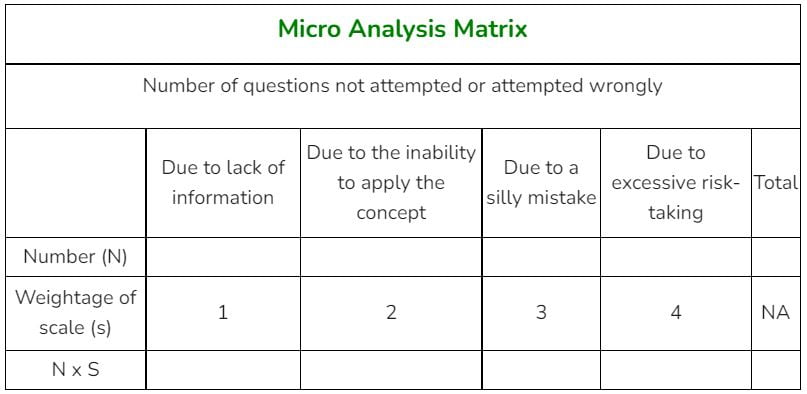
Scale 1: Information meter (1)
Scale 2: Analysis meter (2)
Scale 3: Anxiety meter (3)
Scale 4: Risk meter (4)
Suppose on Day 1, questions have been framed from Polity on the topic of Constitutional History. There are 15 questions and you are able to answer 12 out of which 7 are correct and 5 are incorrect. It means you have scored roughly 11.33 out of 30. Now you have to fill on a daily basis, the following matrix to micro analyse your preparation:
Example: Suppose, the filled up matrix gets reflected in the following fashion:
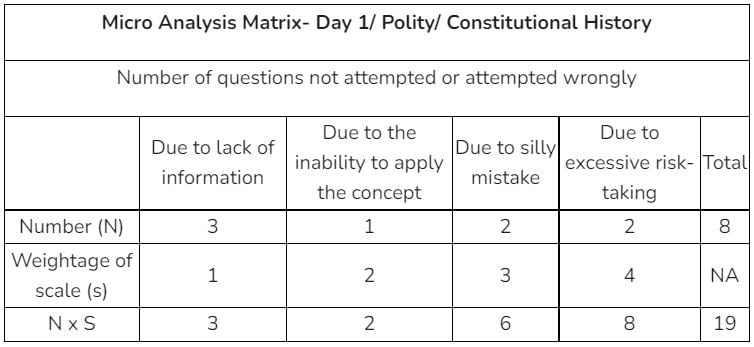
Based on the total value in this matrix, you have to aim for the following measures on the scale:
- Information meter < 4
- Course Correction: If you are scoring above 4, it means that there are serious gaps in your information base in the particular subject/ topic. Please refer to a standard textbook before it’s too late.
- Analysis meter < 4
- Course Correction: If you are scoring above 4, you need to explore all possible questions in your mind while reading the topic. You should frame questions for your friends and try to trick them by twisting the questions.
- Anxiety meter < 3
- Course Correction: A score above 3 indicates that you are either too excited or too callous to even read the question. You need to calm down and read the question twice, particularly those questions in which you feel too confident.
- Risk meter < 8
- Course Correction: You need to curb your risk-taking instincts. Make an only intelligent guess and don’t leave your chance on fate. Don’t let the previous year’s cut off impact your mind.
- Total N x S score < 20
Moreover, IASbaba will give a cut-off figure along with the solutions each day. If your total marks exceed that cut off along with your total N x S score lying below 20, you are on the right track and just need to keep the momentum going.
This exercise will hardly take 5 minutes of your daily time but it might do wonders for you as you will be able to gauge your strengths and limitations better.
Finally, it is up to you to take advantage of this framework. We are sure of only one thing- if you follow this programme, assess yourself on the basis of the given framework and keep improving your weaker areas, success will be yours.
Importance of self – tracking:
We could have provided all of you with login id and passwords to monitor your daily performance in the 60-day program.
Instead, a simple and most beautiful way which Disqus provides is profile based commenting!
Yes, we have seen the most successful candidates who have taken the maximum benefit from this program monitoring themselves by commenting on their answers in the box given (Disqus comment). And reviewing their performance themselves once in 10 days on the progress meter.
To Receive Regular updates about the 60 Days – Rapid Revision (RaRe) Series – Click Here
So, gear up for this thrilling final lap of your preparation.
The launch of “The 60 Days– Rapid Revision (RaRe) Series” is the indication that the Count Down for UPSC Prelims-2022 has started.
Tik Tik Tik – The time is running out. Make the best use of it.
All the best
IASbaba













